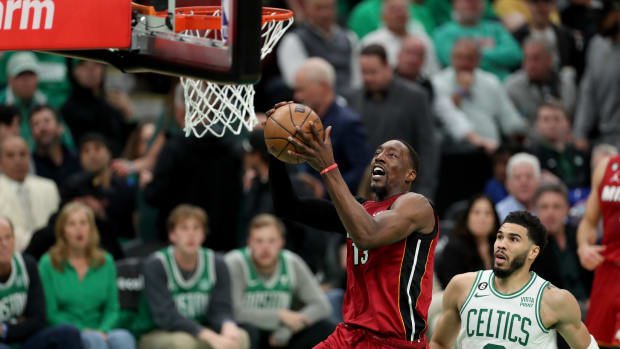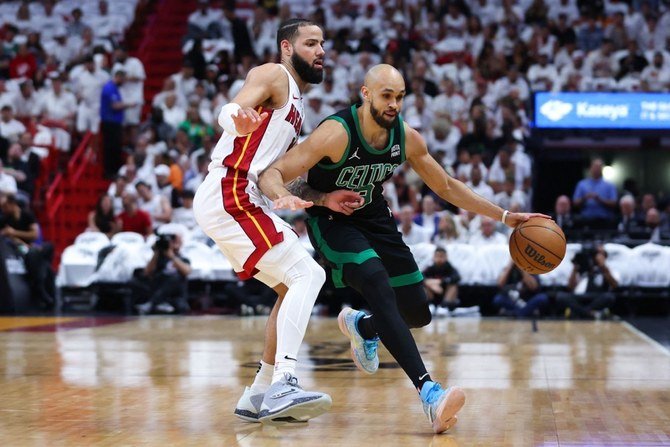
The Boston Celtics had an impressive record of 36-1 during the regular season when they shot 40% or better from beyond the arc. Their performance continued into the playoffs, where they secured a convincing 114-94 victory over the Miami Heat in Game 1 by sinking 22 three-pointers at a 48% accuracy rate, showcasing their prowess in long-range shooting.
The Celtics’ reliance on three-pointers is well-known, leading the league with an average of 42.5 attempts per game during the regular season, a number that increased to 49 attempts in Game 1. Their ability to convert these shots at a high percentage makes them a formidable opponent, even for top-tier teams like the Heat, especially in the absence of Jimmy Butler.
The key question now is whether the Celtics can sustain this level of shooting success throughout the series. While it’s unlikely they’ll replicate Game 1’s shooting performance entirely, the Heat cannot simply hope for a reversal of shooting luck in their favor. Boston’s three-point attempts in Game 1 were predominantly assisted rather than self-created, suggesting a sustainable offensive strategy.
Kristaps Porzingis played a pivotal role in Game 1, demonstrating his versatility as a “super-stretch” big man who creates high-quality three-point opportunities for Boston. His ability to shoot from long range, excel in post-up situations, and act as a threat in pick-and-roll scenarios forces opponents like Miami to make defensive choices that often lead to open shots for his teammates.
Against Miami’s zone defense, which aims to stifle potent offenses, Boston showed adaptability and aggression. They exploited gaps in the zone by involving players like Jayson Tatum in strategic positions, such as the corner, leading to effective ball movement and open looks from three-point range.
The Celtics’ offensive success in Game 1 stemmed from a combination of patience, assertiveness, and smart decision-making. They consistently outmaneuvered Miami’s defense, staying a step ahead and creating clean scoring opportunities through well-timed passes and disciplined play.
If Boston maintains this level of offensive cohesion and continues to generate high-quality looks, particularly assisted three-pointers, their status as one of the league’s best shooting teams will remain unchallenged, and Miami’s hopes of relying on Boston’s shooting luck dwindling would be unfounded.






